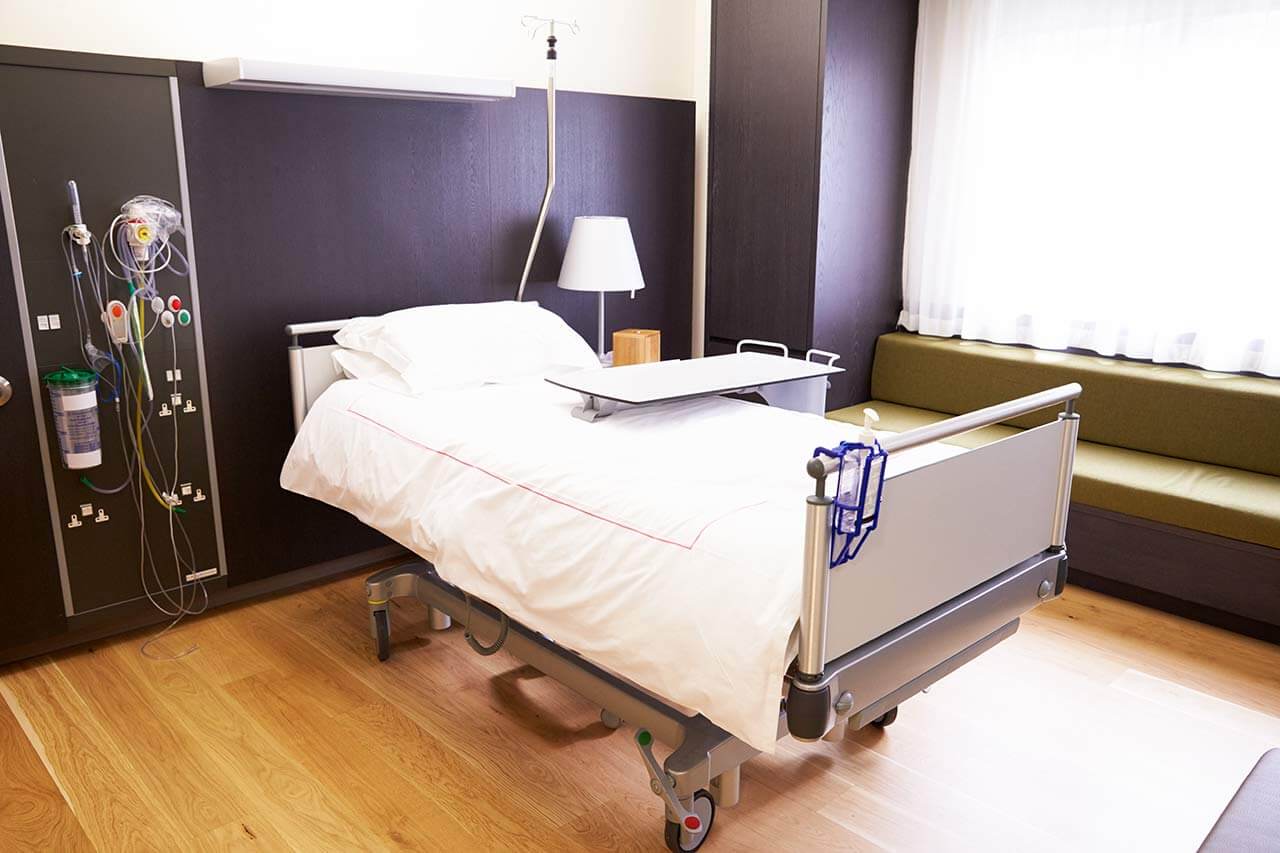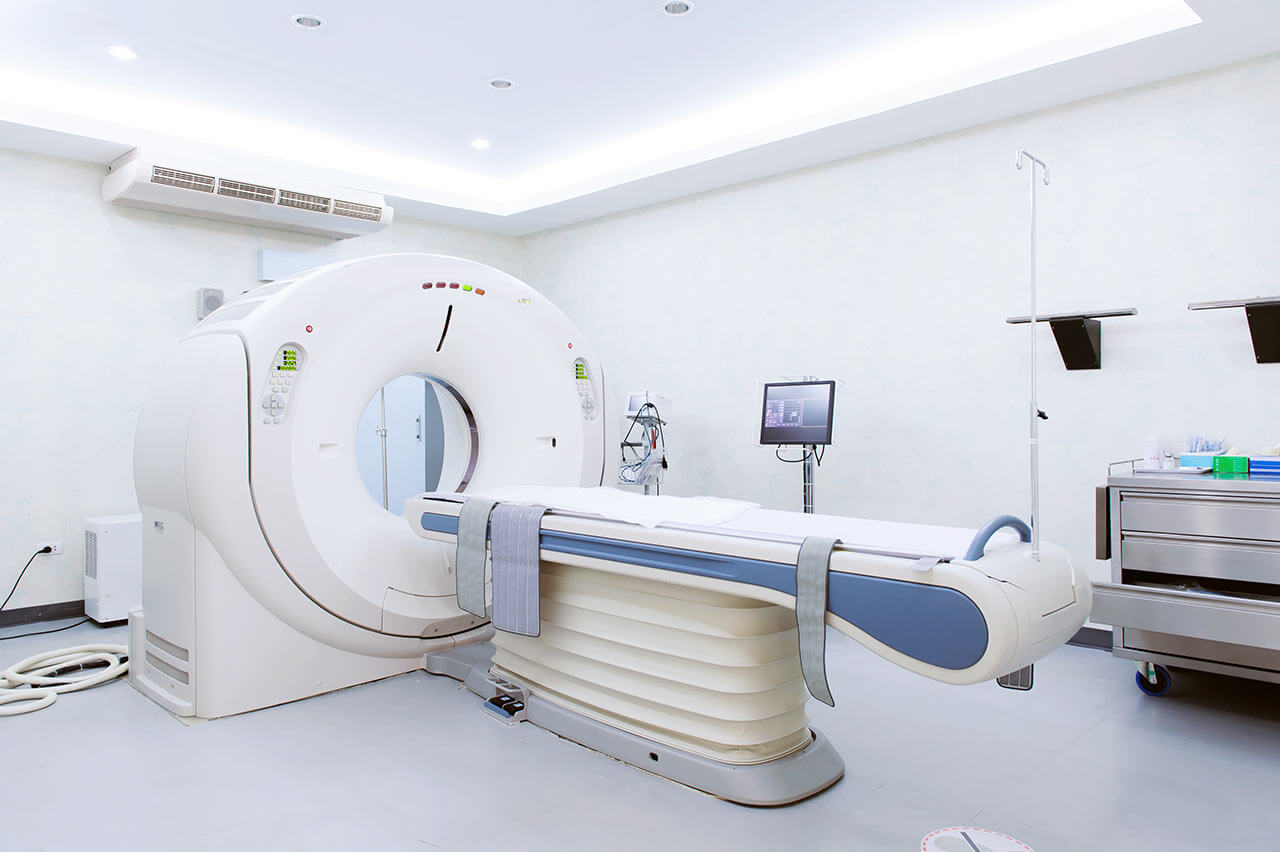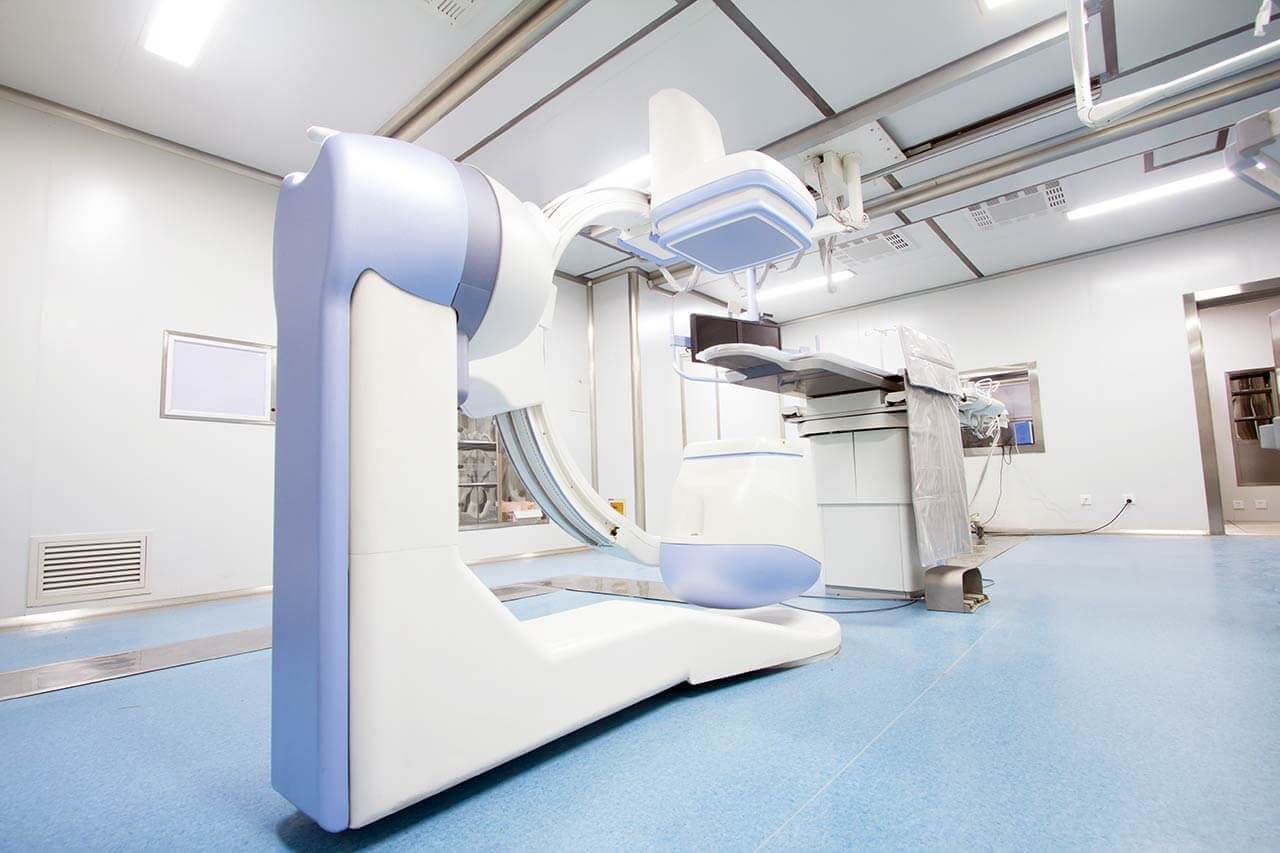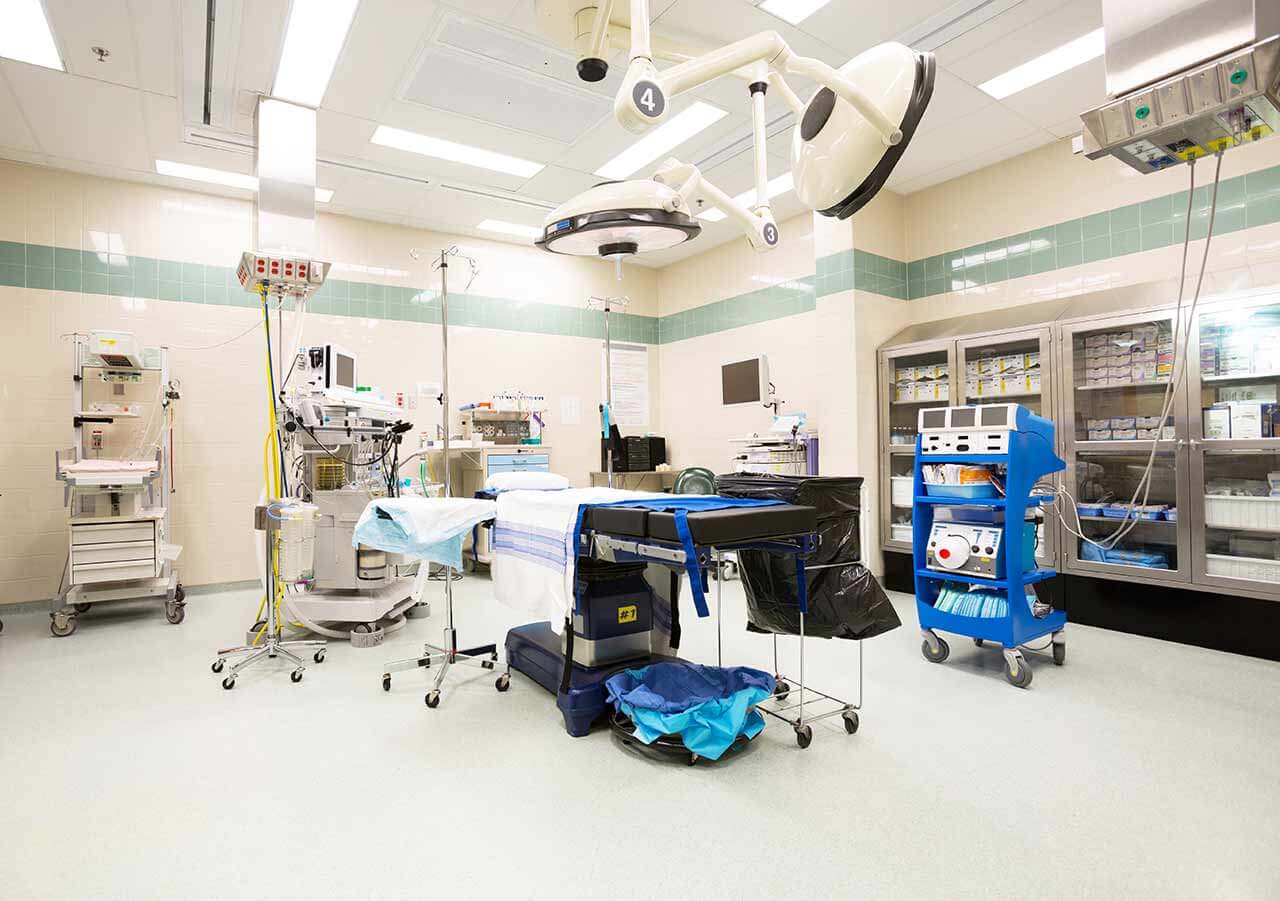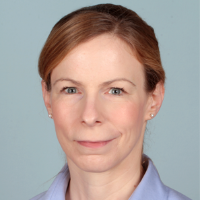
About the Department of General and Abdominal Surgery, Hepatopancreatobiliary Surgery, Colorectal Surgery, Hernia Surgery at Charite University Hospital Berlin
According to the Focus magazine, the Department of General and Abdominal Surgery, Hepatopancreatobiliary Surgery, Colorectal Surgery, Hernia Surgery at the Charite University Hospital Berlin is one of the best medical facilities in Germany for the treatment of colon, stomach, esophageal, pancreatic, and liver cancers!
The main specialization is surgical procedures for malignancies in the intestines, stomach, esophagus, liver, pancreas, and rectum. The department also successfully operates on patients with chronic inflammatory bowel disease such as Crohn's disease and ulcerative colitis. The department's therapeutic capabilities are complemented by the treatment of gastroesophageal reflux disease, sigmoid diverticulum, umbilical and inguinal hernias, cholelithiasis, and anorectal disorders. Nearly all surgical procedures are performed using minimally invasive surgical techniques – the department has the status of a Center of Excellence for Minimally Invasive Surgery certified by the German Society for General and Vascular Surgery (DGAV). The medical facility also offers innovative da Vinci robot-assisted surgery. These procedures have become the standard of care for colon cancer, rectal cancer, and colonic diverticulosis. Each clinical case is evaluated individually and the surgical procedure is carefully planned. Surgeries are performed in high-tech operating rooms in compliance with hygiene and safety standards. The department is headed by Prof. Dr. med. Katharina Beyer.
Patients with gastrointestinal cancers, especially primary and metastatic liver lesions, are operated on almost daily in the department. Cancer surgery is part of a multimodal treatment approach, and surgical intervention is often the mainstay of a cancer treatment regimen that is supplemented by systemic therapies and/or irradiation. Treatment tactics are developed in a weekly interdisciplinary tumor board, which allows physicians from related specialties to thoroughly study the characteristics of the clinical case and offer the most effective treatment options. Colon cancer is the most common oncological disease in the practice of the department's surgeons – more than 800 patients with this diagnosis are operated on here every year. The department's specialists actively practice minimally invasive and robotic surgery for the treatment of colorectal cancer. These operations are not inferior to classical surgery in terms of effectiveness, but at the same time they allow for maintaining a high quality of life in the postoperative period. Thanks to miniature incisions, the surgical risks are reduced, significant blood loss is eliminated, the patient does not suffer pain, and the hospital stay is significantly shortened. When clinically indicated, the department's surgeons remove intestinal tumors using the advanced da Vinci X robotic system. Controlled by a specially trained surgeon, robotic surgery is highly precise and helps avoid the bowel dysfunction that often occurs after traditional open surgery.
Treatment of chronic inflammatory bowel disease (IBD) is also an integral part of the work of the surgeons in the healthcare facility. Ulcerative colitis causes inflammation of the colon, and Crohn's disease can affect the entire gastrointestinal tract. The first-line treatment for IBD is drug therapy, but in 90% of Crohn's disease cases and 50% of ulcerative colitis cases require surgery at some point. When considering the need for surgery in IBD, abdominal surgeons work with gastroenterologists to carefully analyze the patient's clinical data and previous treatment options to determine the advisability of surgery. Patients with IBD are most often operated on using minimally invasive surgical techniques. Robotic surgery with the da Vinci X device may sometimes be used.
The department's abdominal surgeons specialize in the treatment of gastroesophageal reflux disease (GERD). This pathology is characterized by the reverse flow of the contents of the stomach and duodenum into the esophagus, which causes the main symptom of the pathology, heartburn. In most cases, patients with GERD receive drug treatment to relieve symptoms, but in some situations this therapy is ineffective, so surgical treatment is considered. The standard surgery for GERD is a Nissen fundoplication, in which the bottom of the stomach is wrapped around the esophagus, creating a cuff that prevents the stomach contents from flowing back into the esophagus. Patients with GERD also often have a diaphragmatic hernia. In these cases, fundoplication is performed at the same time as hernioplasty. If necessary, surgeons may implant an EndoStim® device to strengthen the cardia of the stomach and create a natural barrier against reflux. All surgical procedures for gastroesophageal reflux disease are performed using minimally invasive techniques, so patients spend only a few days in the hospital.
Colorectal surgery in the department focuses on the treatment of fecal incontinence, hemorrhoids, rectal prolapse, anal fissures, fistulas, and abscesses, and anal and rectal malignancies. The surgical treatment of fecal incontinence is of particular clinical interest to the physicians of the healthcare facility: the specialists successfully perform sacral nerve stimulation and sphincter replacement surgery, which is classified as a particularly complex procedure.
The department's surgical services include the following treatment options:
- General and abdominal surgery
- Surgery for malignant diseases
- Surgery for stomach cancer
- Surgery for esophageal cancer
- Surgery for gastrointestinal stromal tumors
- Surgery for chronic inflammatory bowel disease
- Surgery for Crohn's disease
- Surgery for ulcerative colitis
- Surgery for gastroesophageal reflux disease
- Surgery for appendicitis
- Surgery for sigmoid diverticulitis
- Surgery for malignant diseases
- Hepatopancreatobiliary surgery
- Surgery for malignant diseases
- Surgery for liver cancer and liver metastases
- Surgery for pancreatic cancer
- Surgery for gallbladder cancer
- Surgery for pancreatitis
- Surgery for cholelithiasis
- Surgery for malignant diseases
- Colorectal surgery
- Surgery for malignant diseases
- Surgery for anal cancer
- Surgery for rectal cancer
- Surgery for fecal incontinence
- Surgery for hemorrhoids
- Surgery for rectal prolapse
- Surgery for anal fissures, fistulas, and abscesses
- Surgery for malignant diseases
- Hernia surgery
- Surgery for inguinal hernia
- Surgery for umbilical hernia
- Surgery for diaphragmatic hernia
- Other surgical services
Curriculum vitae
Higher Education
- 1999 - 2005 Medical studies, University of Luebeck.
Medical Practice
- 2006 - 2015 Surgeon, Department of General and Abdominal Surgery, University Hospital Greifswald.
- 2016 - 2020 Senior Physician, Department of General and Abdominal Surgery, Hepatopancreatobiliary Surgery, Colorectal Surgery, Hernia Surgery, Charite University Hospital Berlin.
- Since 01.2021 Head Physician, Department of General and Abdominal Surgery, Hepatopancreatobiliary Surgery, Colorectal Surgery, Hernia Surgery, Charite University Hospital Berlin.
Clinical Interests
- Treatment of esophageal cancer.
- Treatment of stomach cancer.
- Treatment of gastroesophageal reflux disease.
Research Interests
- Research projects on sepsis.
- Research projects in oncological diseases.
Memberships in Professional Societies
- German Society of Surgery (DGCH).
- German Society for General and Visceral Surgery (DGAV).
- German Working Group on Minimally Invasive Surgery (CAMIC).
Photo of the doctor: (c) Charité – Universitätsmedizin Berlin
